Mazette welcomes CurieuCity for an afternoon of board games and science. Come along as a family or on your own and let our animators guide you through some original scientific games, while enjoying a well-deserved hot drink.


Mazette welcomes CurieuCity for an afternoon of board games and science. Come along as a family or on your own and let our animators guide you through some original scientific games, while enjoying a well-deserved hot drink.
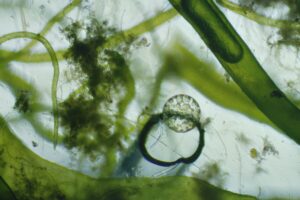
Marjolijn Dijkman, Toril Johannessen
Captured through a light microscope, ‘Reclaiming Vision’ features a diverse cast of microorganisms, sampled from the brackish waters of the inner Oslo Fjord, alongside algae, cultivated at the University of Oslo. The film reveals various processes in the water that are hidden from the naked human eye. By investigating the brackish water, its inhabitants, its properties, and the traces left by human activities, the film is a reflection upon the relationship we humans have with our surroundings, especially through what we cannot see.
Credits:
Reclaiming Vision
Directed by: Marjolijn Dijkman & Toril Johannessen
Music by: Henry Vega
Edited by: Dieter Diependaele
Scientific Consultants: Bente Edvardsen, Jan Heuschele, Jack Christopher Leo, Luka Supraha
Filming location: Microscopy lab, Section for Aquatic Biology and Toxicology, Department of Biosciences, University of Oslo, Norway
Commissioned by: Munchmuseet on the Move, The Munch Museum – Oslo, Norway
Reclaiming Vision: 26:37
Formats: Stereo – HD (H.264, Prores 422HQ, DCP)
Featuring (In alphabetical order): Acartia sp., Alexandrium ostenfeldii, Alexandrium tamarense, Ceratium furca, Ceratium tripos, Chaetoceros decipiens, Cirripedia larva, Coscinodiscus sp., Crustaceans, Dictyocha speculum, Dinophysis norvegica, Escherichia coli BL21 (DE3), Euglena sp., Eutreptiella braarudii, Green algae, Insect larva, Melosira sp., Nematodes, Nitzschia sp., Oithona sp., Proboscia alata, Protoceratium sp., Protoperidinium sp.,Prymnesium parvum, Pseudocalanus sp., Rhizosolenia hebetata, Rhodomonas salina, Rotifera, Scenedesmus sp., Skeletonema costatum, Temora sp., Thalassionema nitzschioides, Tigriopus sp.
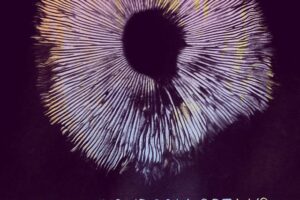
Marion Neumann
What if the fungus could help us address and radically change our relationship to this world?
CurieuCity wraps up the fungi night with a screening of the documentary The Mushroom Speaks. The film explores the healing qualities of fungi and their ability to regenerate. This personal journey takes on a walk alongside parasites, symbionts and decomposers offering ideas of both interconnectedness and collaboration. Driven by a vision of resistance, the encounters seek possibilities of renewal and question what connects us when the world seems to be falling apart. With mushrooms and their allies the film invites to imagine a myco-cultural (r)evolution.
To register click here: https://www.billetweb.fr/curieucity-forest
Credits:
© 2021 Intermezzo Films
With: Anna Lowenhaupt Tsing, Franz Xaver Vollenweider, Peter McCoy, Geoffroy Renaud, Ursula Weiher, Vanja Palmers, Frida Krieger
Direction & Image: Marion Neumann
Sound Design & Music: Olga Kokcharova
Editing: Marion Neumann, Orsola Valenti
Sound Editing & Mix: Adrien Kessler
Image Postproduction Studio: Studio Rougegorge, Robin Erard
Camera Assistant: David Huwiler
Graphic Design: Thomas Perrodin
Website: Jeff Gaudinet, Raphaël Arbuz
Production: Intermezzo Films SA, Katia Monla & Luc Peter
Production Assistant: Aurélie Oliveira Pernet, Stéphanie Severino
Administration: Karla Kolder
Accounting: Annick Kammacher
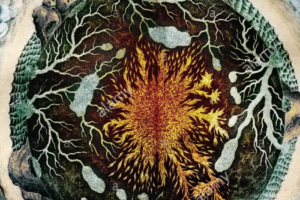
Super Terram & CiDéSol
Discover the earth around us at a special screening followed by a fascinating debate on the state of soil in Brussels. This unique programme will begin with a short documentary exploring the challenges and solutions of urban soil management. After the film, take part in an enriching exchange with members of Super Terram, CiDéSol and Bruxelles Environnement.
This exchange will be an ideal opportunity to gain a better understanding of local environmental issues and discover what is being done to preserve the health of our soils.
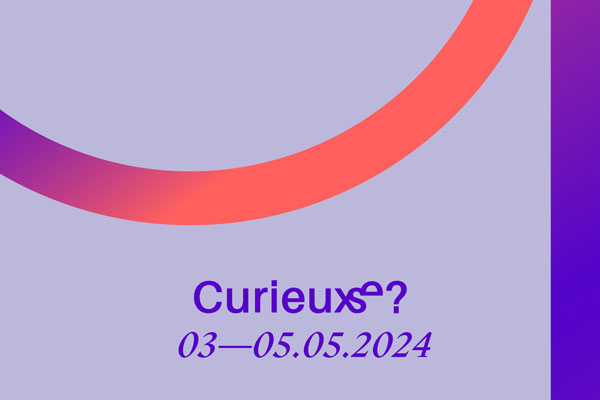
Super Terram, CiDéSol & Bruxelles Environnement
Discover the earth around us at a special screening followed by a fascinating debate on the state of soil in Brussels. This unique programme will begin with a short documentary exploring the challenges and solutions of urban soil management. After the film, take part in an enriching exchange with members of Super Terram, CiDéSol and Bruxelles Environnement.
This exchange will be an ideal opportunity to gain a better understanding of local environmental issues and discover what is being done to preserve the health of our soils.

Irene Gutiérrez Torres & Rola Zamzameh
Join us for a conversation and film projection with Irene Gutiérrez Torres (VUB, Reel Borders) & Rola Zamzameh (Cinemaximiliaan).
Reel Borders studies how borders are imagined through film. Reel Borders presents a collection of shortfilms made during a participatory film workshop in Ceuta, a Spanish enclave in North Africa, on the border with Morocco. These films offer a unique view of the world through the eyes of these women, bringing their stories and experiences to the forefront in a compelling and authentic way. Participatory cinema thus becomes a powerful tool for advocacy and empowerment for these women, allowing them to raise their voices and share their perspectives with the world.
Cinemaximiliaan is a platform by and for newcomers in Belgium, with a love for cinema and other artistic and cultural practices of storytelling, aiming for warm dialogues with the people of their new homeland.

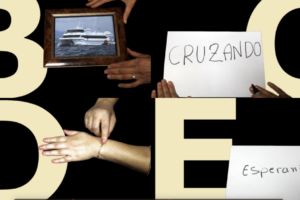
Irene Gutiérrez Torres
Join us for a screening of short essay films created during a participatory filmmaking workshop in Ceuta, a Spanish enclave in North Africa bordering Morocco.
Thirteen women produced these short films over a three-month Participatory Filmmaking workshop situated in Ceuta. Participatory Filmmaking employs collaborative techniques enabling groups to create films about issues they deem significant.
The films’ narrators are cross-border Moroccan women working in domestic service, residing irregularly in Ceuta and representing approximately eight hundred women. These individuals have become part of a larger group of long-term undocumented migrants across Europe. The films do not show faces; this choice serves two purposes: to preserve their anonymity and to comment on their status as ‘invisible women.’ Instead of showcasing faces, the films focus on spaces. We view their world through their eyes, not ours.
Participatory filmmaking serves to elevate their voices and bring their stories to the forefront. For these women, participatory filmmaking is not just a medium—it’s a powerful tool for advocacy and empowerment. The films will be showed in loop during the whole festivalweekend.